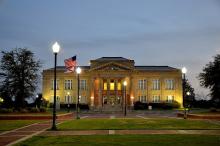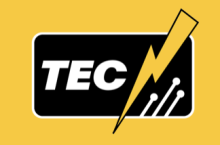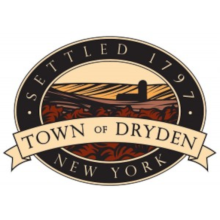
Fifteen years ago, Covington Electric Cooperative (CEC) was the first in the southeast region of Alabama to bring its members online with dial-up Internet access. And while it has since left the broadband business, it announced at the beginning of April it plans to come back in a big way, connecting all of its members once again through its new Fiber-to-the-Home (FTTH) network, Buzz Broadband.
Buzz Broadband is a new subsidiary that will provide FTTH broadband service to members across its six-county territory and more than 23,000 households. CEC chose the name, because “like the mighty bee, high-speed broadband is a force to be reckoned with. Having fast and reliable access to such technology takes the sting out of meeting deadlines, virtual learning, working from home and running a business.”
CEC started building out the backbone in January and is on track to finish by the end of this month, with the first members coming online this fall. According to CEC’s 2021 Annual Report, “expansion to all CEC members will be done in phases and will take a few years to be complete.”
Initially, the FTTH build out was supposed to take four years, but with all the enthusiasm around the network, Short asked the board if CEC could fast track the build out to two years. He said that’s what they are aiming for, and when Buzz Broadband was announced, it was made clear that the board is “committed to making high-speed fiber broadband access available to every CEC member by 2025, if not sooner.”
“We’re on track to invest $65 to $70 million in two years, where our electric plan was only $180 million give or take, and it took us 77 years to get to that point,” Short said. “It’s quite an accelerated cash flow.”
Overwhelming Support
CEC was formed in 1944, in response to the Rural Electrification Administration offering long-term, low-interest loans to finance the electrification of rural America. When no one else would bring service to the surrounding area, CEC was born. Today, it has 2,700 miles of electrical power lines spread across six counties, Covington, Coffee, Crenshaw, Dale, Geneva, and Escambia. It is headquartered in Sanford, AL with branches in Brantley, Enterprise and Samson.
In the early 2000s, CEC again answered the needs of the area by being the first to offer its members Internet access through dial-up. The co-op ended up having over 10,000 subscribers. With the emergence of cable and DSL, CEC decided to get out of the business. But in the last few years, calls for CEC to reenter the arena have propelled them to launch Buzz Broadband.

A year before the pandemic hit, in May 2019, Gov. Kay Ivey signed HB400, which allows electric providers to become Internet Service Providers (ISPs). A month later, CEC conducted a survey of membership about whether or not there was a desire for CEC to start offering a broadband option. More than 80 percent of respondents wanted CEC to put money into building out a network.
“It was overwhelming that they wanted us to be in the broadband business. And then the Covid thing kicked it over the edge,” Ed Short, President, CEO and General Manager of CEC told ILSR in an interview.
With COVID-19 came the need for CEC employees to work from home. Reliable, fast Internet access wasn’t just an issue for CEC employees but for CEC’s membership, and with distance learning coming into play and the need for telehealth options, it was no longer something that could be mulled over: CEC had to act.
In December 2020, membership voted for CEC to get into the broadband business.
According to CEC’s 2021 Annual Report, construction on the first stage of the project would connect CEC offices and substations. This would allow for future grid improvements and improvements to outage response time.
Bringing Competition to Southeast Alabama Broadband
While CEC has offered connectivity in its history of service, Short acknowledges offering broadband means entering into a competitive market.
“We’re going into a competitive world. We know that, but we haven’t really experienced it.”
Short said in an effort to bring more expertise into the project CEC is contracting with Huntsville, Alabama-based FiberRise, an engineering and consulting firm that works with electric co-ops and investor-owned utilities to help build and maintain fiber networks.
CEC aims to secure funding from the Cooperative Finance Corporation (CFC) for half of the $65 to $70 million needed for the project. Short says that between that, the $14 million CEC received in Rural Digital Opportunity Fund (RDOF) funding, the $1.5 million grant CEC received from the state, and the potential for other funds to come into rural areas from the new administration, CEC should be able to build out the project.
“That, [along] with what we have earmarked through grants, will be more than enough to build out, and by that time we hope we got some revenue coming in from the subscribers,” Short said. “The survey results tell us that there’s enough appetite out there for it to [achieve positive] cash flow relatively soon, in co-op terms … We deal in 30-year mortgages, so if we [can pay it back] in seven years, that’s a bargain to us.”
While Short said he was glad they were able to get RDOF funding, he said they only received about half of what they were expecting because an incumbent bid the price down to what Short described as virtually nothing.
“They had no intention of building out. They were just trying to keep us from getting the money. There’s no doubt about that.”

CEC is committed to covering the members that are most in need of better Internet access, stating in their annual report, “eventually we will offer all of our members high-quality internet access that allows them to work, learn and play at the highest speeds around.”
“We’re going to overbuild some of our current providers, [and] it’ll be up to the members at that point as to who they will take service from,” Short said. “I know that’s going to cause some political fights, but that’s nothing new.”
There are five other ISPs in CEC’s service territory, but only two can compete with CEC’s proposed lowest tier of 200 Megabits per second (Mbps) symmetrical. This includes CenturyLink (which specializes in DSL but has fiber in the area) and Troy Cablevision (which specializes in cable, but also has fiber in the area). While Troy offers 200 Mbps symmetrical or above to 100 percent of its customers, the ISP only covers a quarter of CEC’s service area. And while CenturyLink covers nearly all of CEC’s service area, only 3 percent of its households have the option of 200 Mbps symmetrical or above.
Getting Connected
Because CEC will not be offering TV programing, Short said CEC plans to do some digital literacy training with folks in the region to help them access streaming services and get the most out of their subscriptions.
“It gives us an opportunity for one-on-one engagement [with] our membership, which is pretty exciting to me,” Short said.
Currently, Buzz Broadband has an option for local residents to be notified when service is available in their area. There will be three service options, all symmetrical: 200 Mbps for $60/month, 1 Gigabit per second (Gbps) for $80/month and 2 Gbps for $100/month.
CEC is in the early stages of collaborating with other Alabama cooperatives to put together a statewide backbone that will reach across all four borders of the state, building more redundancy, to insure a better network for the state overall. Working with other co-ops in the area is firmly rooted in CEC’s values of strengthening and maintaining collaborative efforts in the region. The project could also reduce the cost and speed up the completion of other projects in the long run, so that other communities in Alabama can someday have first-rate Internet access.










